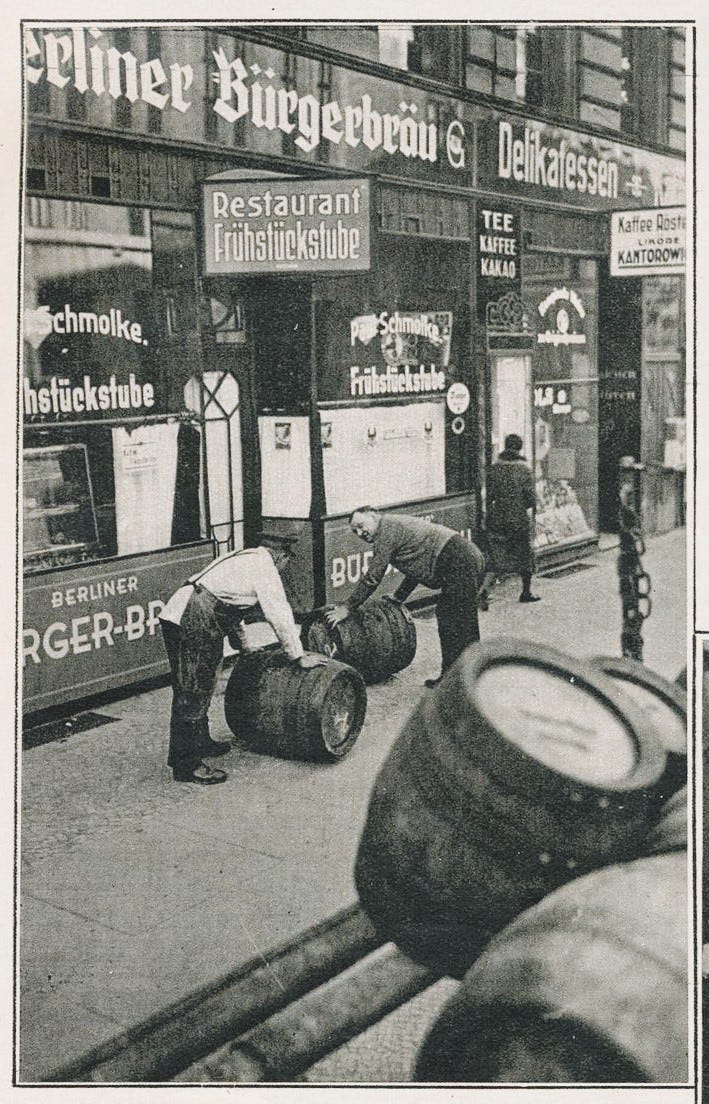TODAY IN BERLIN: BREWING ANGER
February 25, 1932
The news from the Federal Statistical Office is unsettling at best: German beer consumption has fallen again. By a whopping 25% between 1993 and 2023. But if Berlin were a patient and Berlin's beer consumption habits were one of its vital functions monitored on a screen since 1900, then 2023 would still be pretty much alive and kicking.
At the beginning of 1932, however, the patient suffered a complete collapse. Not because Berliners had lost interest in their Helles (lager) - on 25 February 1932 the Berliner Bierstreik (Berlin Beer Strike) began.
After the office of the Reich Commissioner for Price Control, Carl Goerdeler (whom the New York Times described as "the nation's price czar" and who was executed in 1944 as a participant in the July assassination attempt), recommended raising the tax levied on beer retailers, a wave of deep resentment swept through the nation's pubs. From Hamburg to Munich, pub owners simply refused to pay the new tax.
Negotiations between the government and the German Innkeepers' Association failed to produce an agreement. The situation was grim. The global economic crisis of 1929 had left deep scars - for small restaurants, hotels or beer pubs, any additional financial burden could spell doom.



